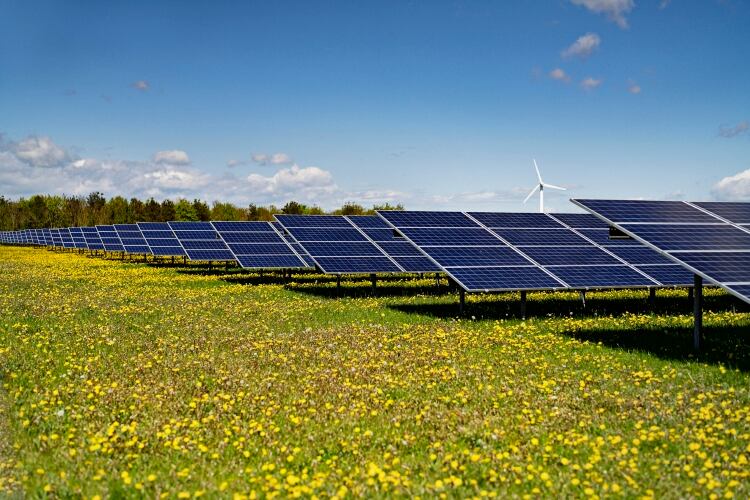Arla said it is the most extensive agreement on renewable electricity from a Danish company without public subsidies in Danish history and one of several initiatives to help Arla Foods meet its new 2030 emissions reduction target for its internal value chains, which is double the previous target.
Arla Foods recently announced a new 2030 climate target. The dairy cooperative is increasing its target for reducing emissions in operations and logistics from 30% to 63%. The new target has been approved by the Science Based Targets initiative (SBTi) as being consistent with the reductions required to keep global warming to 1.5°C.
Under a 10-year agreement, the dairy cooperative said it is committing to purchase the majority of the electricity from the new solar parks.
The parks have an expected capacity of 250 GWh, corresponding to the annual energy consumption of 156,000 average Danish citizens, and enough to cover about one third of Arla Foods’ electricity consumption in Denmark.
“We are proud to be one of the first farmer-owned dairy cooperatives in the world to have a 1.5°C target approved by SBTi, and the new solar parks will play an important role in our shift towards renewable electricity and low-energy solutions at Arla Foods,” says Hanne Søndergaard, executive vice president at Arla Foods.
“Our Danish sites form a major part of our operations, which is why we are very pleased to begin our transition towards green electricity in Denmark.”
By the end of 2025, Arla Foods’ electricity consumption in the EU will come from renewable energy sources, with the majority through green power purchase agreements and investments in solar and wind projects.
“Arla and our farmer owners continuously invest in new initiatives all the way from cow to grocery store with the aim of reducing our emissions and energy consumption. These initiatives include climate checks on the farms, reduction of food waste, sustainable packaging and green energy sources,” Søndergaard said.
“Our nearly 300 organic farmers and our biggest dairy sites in Denmark already run entirely on green electricity. The agreement with Better Energy is an important step in the right direction, and a way for Arla to contribute to the overall increase in Denmark’s green energy production.”
The first solar park is expected to start delivering electricity by early 2023, and all four are scheduled to supply electricity by early 2024. Better Energy is responsible for the construction, operation, and maintenance of the solar parks, which take up a total of 280 hectares of land.
“We are pleased that Arla has chosen to purchase green electricity that has a real impact on the transition towards green electricity in Denmark. With their extensive production in Denmark, it is the right choice for Arla to use sustainable and fossil-free electricity produced in Denmark. We have seen a minor revolution within solar power in recent years, and we consider this to be a smart choice for Arla to incorporate solar power into their value chain,” said Rasmus Lildholdt Kjær, CEO of Better Energy.
The four solar parks will be located in Denmark. The first park will be built in Ebberup in Assens Municipality. The location of the remaining three parks still awaits final approval.

